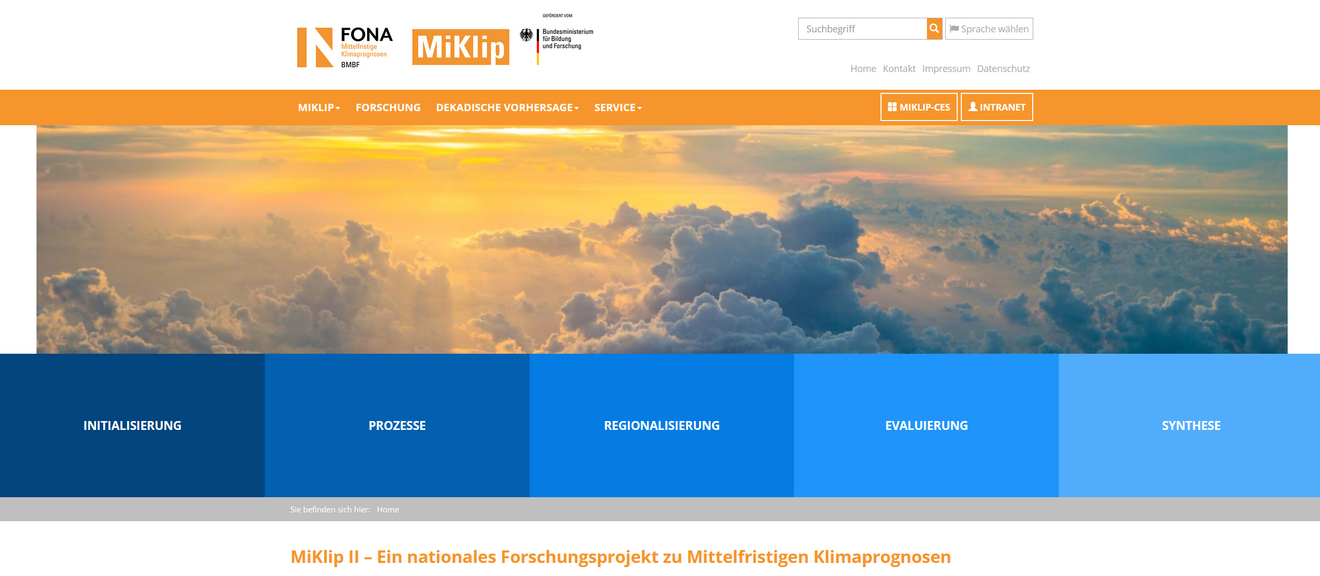
Decadal climate predictions cover time-scales of several years up to a decade. They close the gap between short-term weather predictions, seasonal climate predictions, and long-term climate projections. The MiKlip project, funded by the German Ministry for Education and Research (BMBF), has as its main aim to develop an operational decadal climate prediction system to be hosted and run by Deutscher Wetterdienst (DWD).
The MiKlip decadal forecast website aims to publish the results of these decadal climate predictions and to understandably explain them via an interactive interface to the public.
This time, the MiKlip forecast was based on the higher-resolution model MPI-ESM-HR. The global mean surface air temperature for 2019 is predicted to be higher by 0.58 °C than observed in the reference period 1981–2010 and thereby 0.25 °C warmer than 2018, with hot spots of 1.2 °C and more in Eastern Europe and the areas north of the North Polar Circle. The regional model for Europe predicts a mean warming of 1.01 °C compared to the reference period 1981–2010, which is 0.31 °C more than the observations for 2017, with warmer areas above 1.2 °C at the Adriatic coast and in the central Balkan countries.
The website also presents the forecasts for four-year averages in surface air temperature for the entire globe, Europe, and the North Atlantic. The forecasts show increased global mean surface air temperatures compared to the reference period 1981–2010, and a warming of +0.58 °C will be reached for the mean over the period 2019–2022. On regional scales there is likewise a warming trend, though its magnitude varies. For Europe, the warming reaches values greater than 1.6 °C at the end of the forecast period in large areas of eastern and northern Europe.
The website allows visitors to explore two different types of forecasts, displayed as time series and maps. The website also provides an evaluation of the skill of the MiKlip system, that is, how well retrospective forecasts (hindcasts) have captured observations in the past. The forecast skill of the MiKlip system is compared to the forecast skill of two standard reference forecasts, climatology and climate projections. Website visitors are encouraged to leave their feedback.
Those wishing to find out more about decadal climate predictions and the science behind them are invited to visit the pages on "overview on decadal climate prediction" and the pages about specific MiKlip research work packages.
Prof Dr Jochem Marotzke
Max Planck Institute for Meteorology
Phone: +49 40 41173 311 (Assistant Kornelia Müller)
Email: jochem.marotzke@mpimet.mpg.de
Dr Sebastian Hettrich
Max Planck Institute for Meteorology
Phone: +49 40 41173 310
Email: sebastian.hettrich@mpimet.mpg.de
Dr Wolfgang Müller
Max Planck Institute for Meteorology
Email: wolfgang.mueller@mpimet.mpg.de